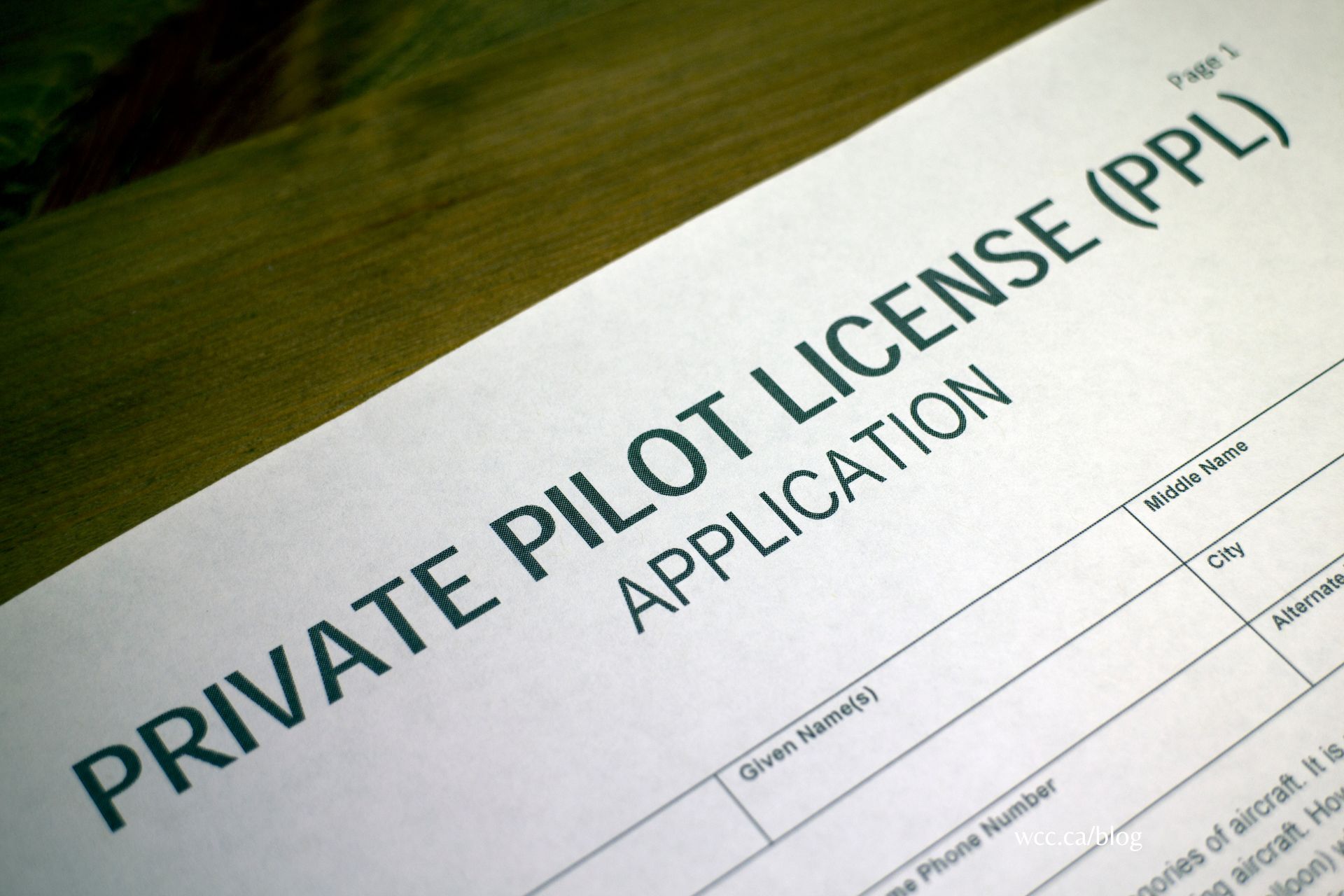Have you ever been fond of gigantic aircrafts parked at an airport?
Did you ever wish to fly this beauty one day? Well, your wish may come true if you aim to become a pilot!
However, becoming a pilot is not as easy as it seems, especially when you’re already in a hurry to start your career. Therefore, we have written this article to answer your question, ‘Can I get a PPL in 3 months?’
So, let’s get started and figure out the possibilities of this statement!
Requirements for Obtaining a Private Pilot License:
Obtaining PPL quickly is possible if you fulfill these standard requirements;
- Age must be at least 17 years old
- Fluent and proficient in English language
- Medical certificate of category 1 or 3
- Clearance of medical test examined by AME
- You must complete a minimum number of flying hours, which include both dual instruction (with an instructor) and solo flight experience.
- Education in home-study course
- Clearance of knowledge test regarding aircraft and other related subjects taught in ground school
- Clearance of practical flying test
Skills and Preparation:
- Pilots must learn to make appropriate judgments in a variety of flying scenarios, including weather changes, equipment breakdowns, and airspace challenges.
- Deep understanding of risk management principles and its implementation
- Pilots must be skilled at both classic navigation techniques and current GPS devices
- Good spatial awareness
- Pilots must be able to comprehend technical knowledge in order to understand how their aircraft operates.
- Strong communication skills to communicate with crew members and air traffic controllers etc.
Steps to Obtain a Private Pilot License:
Ground School and Knowledge Tests
Step 1: Find a reputable flying school or ground school programme that provides PPL ground training. Make sure the program fits the regulations specified by your country’s aviation authorities.
Step 2: Completion of Aerodynamics, aircraft systems, weather, navigation, rules, and flight planning covered by the ground school curriculum.
Step 3: After finishing ground school or self-study, you will need to pass a series of knowledge assessments. These tests usually include:
Written Knowledge Test: This test measures your comprehension of the content presented in ground school. It is normally made up of multiple-choice questions and conducted by the aviation authorities.
Radio Communication Test: Certain aviation authorities may require you to demonstrate competency in radio communication techniques.
Flight Training
Enrollment: Begin your flight training at a flight school or with a certified flight instructor (CFI). Ensure that the school or instructor is reputable and fulfills the aviation authority’s criteria.
Dual Instruction: You will begin with dual instruction, in which you will fly alongside a professional flight instructor. During these flights, you will master fundamental man oeuvres, takeoffs, landings, navigation, and emergency procedures.
Solo Flight: As you go through your training and exhibit ability, your instructor will allow you to fly solo. Solo flights are an important milestone in your training since they allow you to practice skills without the teacher present.
Solo Flights
Solo flights help trainees gain confidence and competency in flying abilities, decision-making, and aircraft management.
Responsibility: Flying solo instills a sense of responsibility in pupils because they are exclusively accountable for the flight’s safety and decision-making.
Solo flights can be tough since students must maneuver and handle the aircraft without the assistance of an instructor. However, overcoming these hurdles helps to improve overall skill development and confidence as a pilot.
Check ride and Examination
This step consists of giving a practical exam offline of the aircraft. This is all you need to know about this phase:
The first thing during this stage would be an oral examination that consists of various questions related to airplanes, flying skills, decision making strategies in case of emergency etc. The candidate will be expected to answer each question orally and accurately.
Then, your flying skills, risk management strategies as well as decision making skills will be tested by a senior position pilot who will be invigilating you throughout the practical examination.
Considerations for a Three Month Timeline:
Here are a few factors that may influence the ability to obtain a private pilot license in three months:
- Your availability for full time training that includes ground school and practical flight lessons
- The availability often instructor will influence your ability to obtain a private pilot license in three months
- The reputation and curriculum of the flight School including knowledge about basic aircraft related subjects and practical examinations might hinder the process of obtaining PPL in short time frame
- Your prior experience in flying an aircraft will also influence the time of getting the license
- In addition to this the last but not least factor that may influence your time frame of obtaining a person within three months is weather. Flying in aircraft requires earliest level weather and poor conditions such as rain or storm may lead to delay
Advices and Recommendations:
Here are a few advices for individuals who aim to obtain an expedited private pilot license:
- Be truly committed to obtaining your PPL. This means that if you wish to get your license in a short time frame then you need to dedicate a significant amount of time to your training lessons.
- Secondly, make sure to manage your overall schedule effectively by prioritizing your ground school lessons and then focusing on the rest of the activities.
- In addition to this, it is highly crucial to be consistent with what you wish to achieve
- Moreover, instead of hesitating, you need to be confident and question the instructors more often to clarify any doubts or queries.
- Furthermore, preparation is the key to success when it comes to obtaining a private pilot license.
Challenges:
- Balancing multiple flight related commitments such as lessons, studies, and personal activities overburden an individual.
- Poor weather conditions lead to delay in completing private pilot license training in the alloted time period
- Unavailability of aircraft for training
- Excessive paperwork and other regulatory requirements.
Solution:
- Managing time using the technique of completing tasks organized on the basis of most to least level or priority
- Always look for the weather forecast before starting practical training lessons
- Stay in regular contact with aircraft crew to ensure that the airplane is available on time
Conclusion:
While acquiring a Private Pilot License (PPL) in three months is possible with devotion and strategic preparation, it necessitates careful evaluation of individual circumstances and potential difficulties. To make the most of their efforts, prospective pilots should prioritize dedication, time management, and open communication with instructors.
While weather delays, aircraft availability, and learning speed fluctuation may occur, proactive solutions and perseverance can assist overcome these barriers. Aspiring pilots can boost their chances of successfully completing PPL training within the intended timeframe by staying focused on their goals, remaining flexible, and prioritizing self-care.
I hope this article answered your question, ‘Can I get PPL in 3 Months?
Frequently Asked Questions:
Is it realistic to obtain a PPL in three months?
Yes, an individual may obtain a PPL license in three months if he/she is able to overcome any complexities that may hinder the process.
What are the minimum requirements for a Private Pilot License?
the minimum requirements for a PPL include being at least 17 years old, fluent and proficient in English language, having a medical certificate of category 1 or 3, clearance of medical test examined by AME, having an educational experience from ground-school and clearance of practical flying test
How many flight hours are needed for a PPL?
Forty to fifty hours are needed for a PPL
Can I complete ground school online?
Yes, you may complete ground school online instead of attending lessons physically. However, the practical flight examinations cannot be done online.
What challenges might I face in an accelerated PPL program?
Challenges that you might I face in an accelerated PPL program include being overly burdened, time constraints, unavailability of aircraft and inexperienced flight instructors



